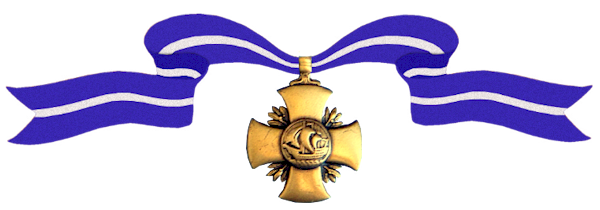The President of the United States of America takes pleasure in presenting the Navy Cross to Lieutenant Colonel Harry E. Sexton (MCSN: 0-64225), United States Marine Corps, for extraordinary heroism while serving as Commanding Officer of Marine Light Helicopter Squadron THREE HUNDRED SIXTY-SEVEN (HML-367), Marine Aircraft Group SIXTEEN, First Marine Aircraft Wing in connection with combat operations against the enemy in the Republic of Vietnam. On 11 September 1970, Lieutenant Colonel Sexton launched as Flight Leader of a flight of nine helicopters assigned the mission of inserting a friendly force into a mountainous area deep in enemy-controlled territory which was heavily defended by enemy anti-aircraft weapons. Shortly after arriving over the designated area, the entire flight came under an extremely heavy volume of enemy fire, damaging each of the gunships and the lead transport. Lieutenant Colonel Sexton maneuvered his aircraft on repeated rocket and strafing runs and led his flight in delivering such devastatingly effective strikes upon the hostile positions that the enemy fire was suppressed sufficiently to enable the friendly force to be safely inserted. By 13 September, the ground unit had sustained approximately twenty casualties while heavily engaged with a North Vietnamese Army force and requested an emergency extraction. Returning to the beleaguered unit, Lieutenant Colonel Sexton braved the intense hostile fire as he skillfully coordinated the extraction efforts of twenty-two Marine and United States Army and Air Force aircraft which resulted in the safe medical evacuation of all of the casualties and the extraction of the crew of one of the transports which was forced to land in a nearby open area when severely damaged by enemy fire. When it became apparent the following day that the ground force required an immediate extraction, Lieutenant Colonel Sexton expertly directed the laying down of smoke screens and the rocket and strafing runs of his gunship helicopters, thereby enabling the transports to enter the dangerous area and safely extract the friendly force. Although his helicopter was seriously damaged by hostile fire, he resolutely remained in the battle area until his extraction mission was completed and then skillfully maneuvered his crippled aircraft to safety. By his dauntless courage, superb airmanship, and unwavering devotion to duty in the face of great personal danger, Lieutenant Colonel Sexton upheld the highest traditions of the Marine Corps and of the United States Naval Service.
Harry
E.
Sexton

December 20, 1932
–
Awards Received
-

Navy Cross
-
Navy Cross
Service:
United States Marine CorpsRank:
Lieutenant ColonelBatallion:
Marine Light Helicopter Squadron 367 (HML-367)Regiment:
Marine Aircraft Group 16 (MAG-16)Division:
1st Marine Aircraft WingAction Date:
September 11, 1970
Authority: Navy Department Board of Decorations and Medals

